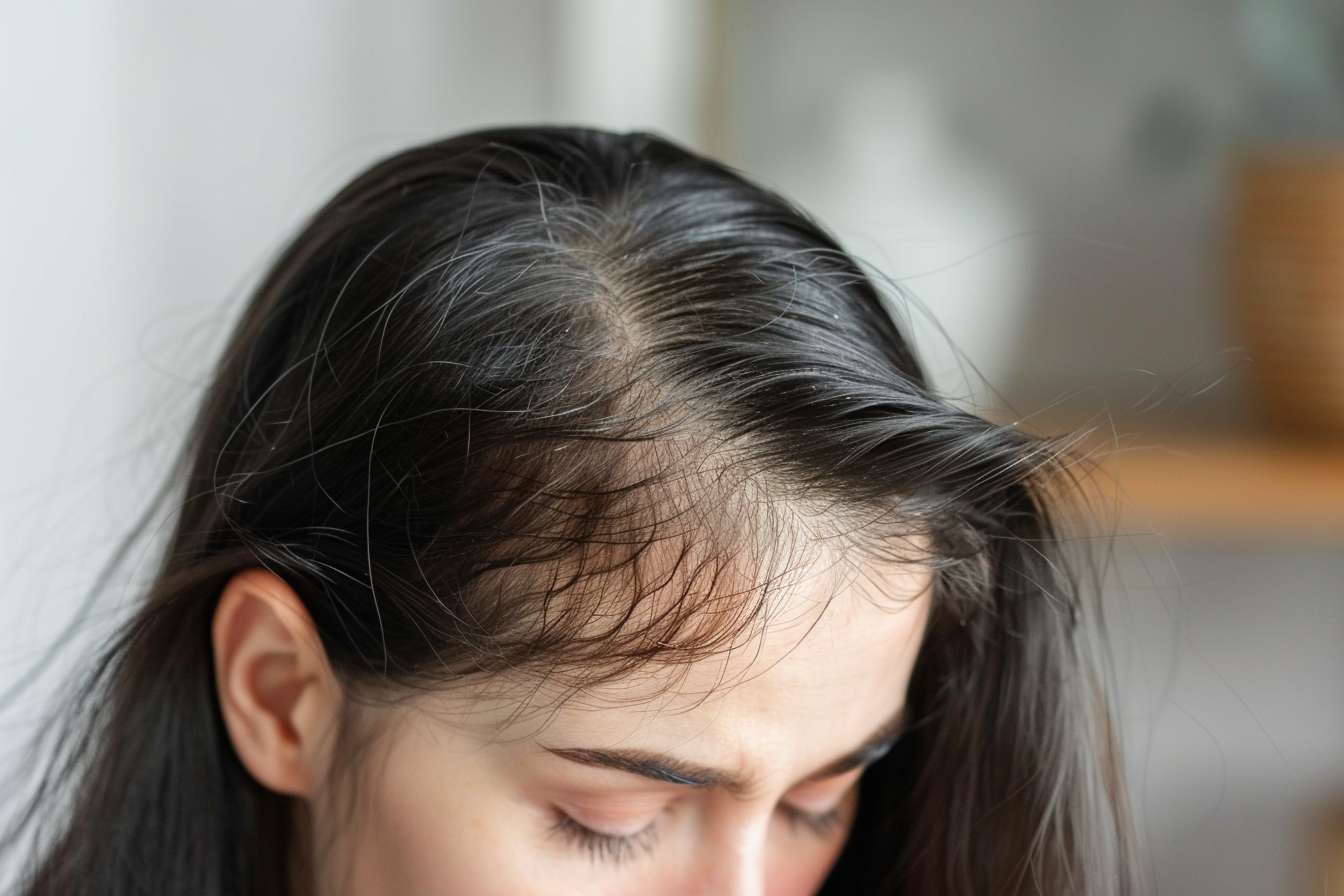5 Reasons That Can Contribute To Hair Thinning
The loss of hair is a common matter of concern and can affect anybody. It is normal to lose a few strands during the morning shower or a quick brush. This is because hair growth functions in a cycle. The lost hair is replaced with new growth and this is the normal process. However, when there is reduced hair growth or thickness, it is alarming and a cause for concern. Hair thinning can be a result of several factors. From hormonal changes to medical conditions, any factor can pose responsible for the condition.

Is Your Lifestyle Affecting Your Hair?
Your daily habits play a crucial role in hair health, often in ways you might not expect. Chronic stress stands as one of the most significant lifestyle factors contributing to hair thinning. When you experience prolonged stress, your body produces elevated levels of cortisol, which can push hair follicles into a resting phase, leading to increased shedding and reduced growth.
Poor nutrition also takes a toll on your hair’s vitality. Diets lacking in essential nutrients such as iron, protein, zinc, and vitamins D and B12 can weaken hair structure and slow growth. Additionally, crash dieting or extreme weight loss can shock your system, causing temporary but noticeable hair thinning known as telogen effluvium.
Sleep quality matters more than you might think. During deep sleep, your body repairs and regenerates cells, including those responsible for hair growth. Consistently poor sleep patterns can disrupt this natural process, affecting hair thickness and overall scalp health.
Uncovering the Root Cause: The Link Between Hormonal Changes and Hair Thinning
Hormonal fluctuations represent one of the most common yet overlooked causes of hair thinning. Women often experience this during pregnancy, menopause, or when starting or stopping hormonal contraceptives. The changing levels of oestrogen and progesterone directly impact hair growth cycles, sometimes causing dramatic changes in hair density.
Thyroid disorders, particularly hypothyroidism and hyperthyroidism, can significantly affect hair health. An underactive thyroid slows down your metabolism, including hair growth, whilst an overactive thyroid can cause hair to become brittle and fall out more easily. These conditions often develop gradually, making the connection to hair thinning less obvious.
Polycystic ovary syndrome (PCOS) affects many women and can cause hair thinning due to elevated androgen levels. This hormonal imbalance not only contributes to hair loss on the scalp but can also cause unwanted hair growth in other areas of the body.
From Medications to Hairstyles: The Unexpected Triggers of Hair Thinning
Certain medications can cause hair thinning as an unintended side effect. Blood thinners, antidepressants, beta-blockers, and anti-inflammatory drugs are among the common culprits. Chemotherapy medications are well-known for causing hair loss, but many people don’t realise that other treatments, including some antibiotics and acne medications, can also affect hair growth.
Your hairstyling habits might be contributing to the problem without you realising it. Tight hairstyles such as ponytails, braids, or buns can cause traction alopecia, where constant pulling weakens hair follicles over time. Excessive heat styling, chemical treatments, and over-brushing can also damage hair shafts and contribute to breakage and thinning.
Even seemingly innocent habits like wearing tight hats regularly or using harsh hair products can impact hair health. The key lies in recognising these patterns and making gentle adjustments to your hair care routine.
What Your Thinning Hair Is Trying to Tell You: Key Factors You Shouldn’t Ignore
Sometimes hair thinning serves as an early warning sign of underlying health conditions. Autoimmune disorders such as alopecia areata cause the immune system to attack hair follicles, resulting in patchy hair loss that can progress to more widespread thinning.
Iron deficiency anaemia frequently manifests through hair changes before other symptoms become apparent. Your hair follicles require adequate iron to produce healthy hair, and when levels drop, hair growth suffers accordingly. Similarly, protein deficiency can cause hair to become weak, thin, and lacklustre.
Scalp conditions like seborrheic dermatitis or fungal infections can create an environment that inhibits healthy hair growth. These conditions often cause inflammation that disrupts the normal hair growth cycle, leading to gradual thinning over time.
Beyond Genetics: 5 Surprising Reasons Your Hair Might Be Thinning
Environmental factors play a larger role in hair health than many people appreciate. Pollution, harsh weather conditions, and exposure to chlorine from swimming pools can weaken hair structure and contribute to thinning. UV radiation from sun exposure can also damage hair proteins, making strands more prone to breakage.
Age-related changes affect hair growth even without genetic predisposition. As we get older, hair growth naturally slows down, and individual strands become finer. The hair growth cycle also changes, with the growth phase becoming shorter and the resting phase longer.
Rapid weight fluctuations, whether from illness, surgery, or dramatic dietary changes, can shock your system and trigger temporary hair thinning. This type of hair loss typically occurs two to three months after the triggering event, making the connection less obvious.
Hair thinning rarely has a single cause, and identifying the contributing factors requires careful consideration of your overall health, lifestyle, and habits. By understanding these various triggers, you can work with healthcare professionals to develop an appropriate approach to address your specific situation. Whether the cause lies in hormonal changes, lifestyle factors, or underlying health conditions, recognising the signs early provides the best opportunity for effective intervention.
This article is for informational purposes only and should not be considered medical advice. Please consult a qualified healthcare professional for personalized guidance and treatment.




